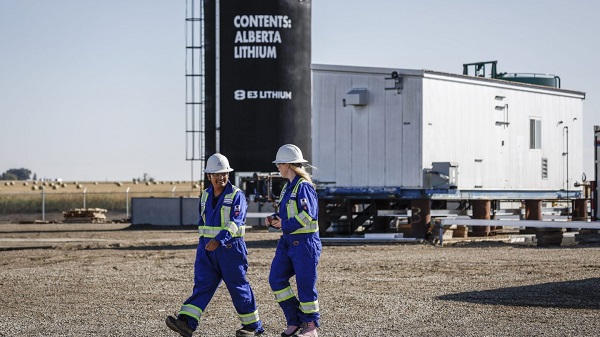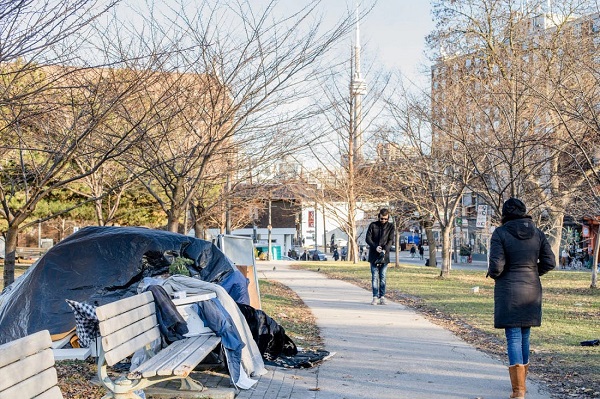International
Slaughter of Christians in Nigeria shows what happens when governments turn a blind eye
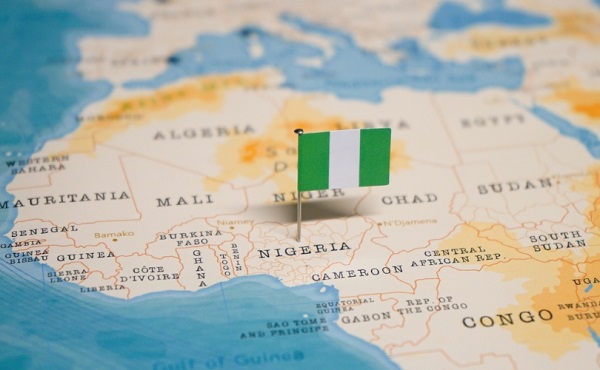
From LifeSiteNews
Over 50,000 Christians have been killed in Nigeria since 2009, but media and global leaders insist the persecution is caused by grazing disputes and ‘climate change.’
Christians in Nigeria have faced sporadic persecution since the 1950s, but the past 25 years have seen a wave of violence that is swiftly becoming a slow-motion genocide. Despite that, the international community has for the most part turned a deliberate blind eye on the weekly killings; when pressed for comment, everything from conflicts over grazing land to climate change have been cited as the real reasons behind the ongoing persecution.
Persecution of Christians in Nigeria began to spike after 1999, when 12 northern states adopted Sharia law; the rise of the terrorist group Boko Haram in 2009 marked a dramatic escalation. Famously, Boko Haram kidnapped hundreds of schoolgirls in 2014. Christian girls were targeted for forced conversion and marriage to Muslim fighters; 87 of the girls are still cited as “missing” 11 years later.
In addition to Boko Haram, attacks on Christians are carried out by the Islamic State West Africa Province and radicalized Fulani herdsman. According to one Nigerian NGO, over 50,000 Christians have been killed since 2009 alone – and not because of “climate change.”
“It is true that worsening drought and shrinking grazing lands are pushing Fulani herders further south – encroaching on the farms of Christian communities – and that resource pressure may amplify rural tensions,” Anja Hoffman, executive director of the Observatory on Intolerance and Discrimination Against Christians in Europe told me, adding:
However, while these environmental stresses help explain population movements, they do not account for the intent and brutality of the violence against Christians. The carnage – church burnings, kidnappings, mass killings – goes far beyond ordinary drift over pasture. Far from accidental consequences of migration, victims are often explicitly identified as Christians by assailants who spare neither the elderly nor the children.
Indeed, Hoffman noted that the ongoing situation in Nigeria is perilous. “While Nigeria generally affords more religious freedom than many countries, violence in specific regions has led to a shocking number of Christian deaths, with more faithful killed here than in all other countries combined,” she said.
“According to the latest Open Doors World Watch List, 3,100 Christians were killed and 2,830 Christians were kidnapped in Nigeria in 2024, far more than other countries in the same year. Attacks continue to spread southward from the Muslim-majority north, displacing families, destroying homes, burning churches and schools, and creating a humanitarian crisis. Many survivors now live in camps for internally displaced persons.”
The truth about the persecution of Christians in Nigeria is that it is coming from Muslims and Muslim groups. “According to Christian relief organisations in the country, the violence stems primarily from Islamic militant groups, such as Boko Haram and ISWAP (Islamic State West Africa Province), who seek to wipe out the Christian presence in the region,” Hoffman explained. “Radicalized Fulani herdsmen militias also participate, and have recently carried out horrific attacks including burning Christians alive in their homes. Christians living in northern states governed by Sharia law also endure legal discrimination and social marginalization, often treated as second-class citizens.”
The reason that this persecution is ongoing is because the government often allows it to happen. “A key factor in this ongoing crisis is impunity,” Hoffman told me. “Government and security services frequently fail to respond. Although President Bola Tinubu’s 2023 election raised hopes for stronger protection, meaningful change has not materialised. Security forces remain under-resourced, prosecutions are rare, and many local authorities deny a religious motive, making justice elusive.”
These atrocities, Hoffman says, “demand global Christian solidarity,” including:
- Raise awareness: Correct inaccurate narratives – emphasizing that the violence is not merely ethnic or environmental but driven by explicit religious targeting.
- Call out bias in secular media: When reports (such as the recent ZDF story) reduce the violence to “climate activism” or land disputes, Christians should challenge these simplifications and direct others to credible sources that highlight the religious dimension.
- Support advocacy efforts: Back petitions, letters, and campaigns demanding international pressure for protection, displacement relief, and justice.
The campaign to “Bring Back Our Girls” may have ended years ago – but not all of the girls are home, and the persecution against Nigerian Christians has only increased. Solidarity is surely the least that we can do.
Crime
The Bureau Exclusive: Chinese–Mexican Syndicate Shipping Methods Exposed — Vancouver as a Global Meth Hub

Canada has become a strategic transshipment and production hub for synthetic narcotics sourced from China’s chemical and Triad-linked supply base, feeding the lucrative Pacific drug markets.
The case of Fatima Qurban-Ali, a 30-year-old Canadian sentenced recently in New Zealand for attempting to import nearly 10 kilograms of crystal methamphetamine on a flight from Vancouver — coerced at gunpoint by a transnational drug syndicate, the court heard — has illuminated a troubling global pattern.
Across a series of recent prosecutions, New Zealand Customs records and sentencing reports show that Canada — particularly Vancouver’s port and airport — has become a major node in the production and shipment of synthetic narcotics by networks supplied through China-based syndicates and Mexican cartels.
Qurban-Ali, an immigrant from Afghanistan whose brother worked as a translator for U.S. and New Zealand forces, arrived in Auckland from Vancouver on December 8, 2024, carrying a red duffel bag filled with packages wrapped in festive paper. Inside, Customs officers found 9.9 kilograms of methamphetamine with an 80 percent purity — a haul valued at roughly NZ$2.9 million.
At her sentencing in Manukau District Court, the judge accepted that Qurban-Ali had acted under threat of violence. Evidence showed she had been lured under false pretences — told she would provide “bottle service” for wealthy clients at a private event similar to ones she’d worked in Vancouver — only to be threatened at gunpoint when she tried to back out.
Her lawyer said Qurban-Ali, an honours graduate who had worked with Indigenous communities in Canada, was “extremely susceptible and vulnerable” to manipulation. Her brother, an interpreter for the U.S. military who once assisted New Zealand forces in Afghanistan, has been missing since 2021.
The judge agreed her case was consistent with coercive recruitment — “how international syndicates tend to obtain their couriers and custodians” — and imposed a three-year, two-month sentence. But as New Zealand’s Stuff reported, her story was part of a larger trend. Just thirty minutes earlier, another Canadian, David Blanchard, was convicted for smuggling a similar quantity of methamphetamine — his crime driven by addiction and the promise of quick money.
Also in August 2025, Customs records show, authorities intercepted a 124-kilogram shipment of methamphetamine concealed in machinery parts shipped by air freight from Canada and allegedly linked to the Auckland-based Killer Beez gang. The drugs’ street value exceeded NZ$37 million.
Police said the operation — dubbed Vault — followed a series of “dry runs” in June consisting of machine-part shipments from Canada designed to test border vulnerabilities.
In September 2025, a 23-year-old Canadian woman received six years’ imprisonment after Customs officers found 15 kilograms of methamphetamine in her luggage on a flight from Vancouver.
And from The Bureau’s earlier reporting, three men were convicted last week in the largest methamphetamine seizure ever recorded at New Zealand’s border — 713.8 kilograms of the drug disguised as maple-syrup bottles, shipped from Vancouver’s port in January 2023. That single load carried an estimated social-harm value of NZ$800 million.
The Bureau is a reader-supported publication.
To receive new posts and support my work, consider becoming a free or paid subscriber.
Together, these prosecutions reveal a striking pattern: repeated meth consignments originating in Canada, exploiting both air-cargo and passenger routes to penetrate New Zealand’s lucrative market.
Former U.S. DEA Operations Chief Derek Maltz, who led international cartel investigations under Project Sentry, told The Bureau the trend emerging in New Zealand and Australia mirrors what he has tracked globally. Chinese and Mexican criminal networks — with Chinese actors supplying chemical precursors and laundering proceeds from fentanyl, methamphetamine, and cocaine, and Mexican cartels managing large-scale production and distribution — have been shifting parts of their operations beyond Mexico, into countries including Canada.
“They’re getting inundated in Australia with cocaine. Same with New Zealand. And now, of course, they’re getting hit with fentanyl shipments. And I believe — I don’t have proof of this — that a lot of it’s coming from these Canadian production operations,” Maltz said.
His assessment aligns with mounting evidence from both hemispheres: Canada has become a strategic transshipment and production hub for synthetic narcotics sourced from China’s chemical and Triad-linked supply base, feeding the lucrative Pacific drug markets.
The deeper roots of the network now targeting New Zealand — which investigators believe include elite Chinese Triad leadership operating from mainland China, Hong Kong, and Canada — stretch back several years. In 2023, Hong Kong national Chi Pang Li was sentenced to ten years and four months in prison after a New Zealand Customs investigation uncovered a parcel-post smuggling operation that moved 20.9 kilograms of methamphetamine from Canada into New Zealand.
Investigators found nine packages of methamphetamine hidden inside tubs of protein powder, each parcel weighing more than two kilograms. All were traced to Canadian postal origins, revealing an organized trafficking route already linking Canadian exporters to Chinese supply sources.
The methods Li’s network used in New Zealand — employing fictitious names and short-term Auckland rental addresses to receive deliveries — mirror techniques seen in Canada, where chemical-precursor shipments from China are processed in a sprawling network of drug labs across British Columbia, according to The Bureau’s investigations.
A Canadian police intelligence source said Chinese networks are exploiting Canada’s Non-Resident Import system, which allows foreign nationals to receive opaque shipments from China under minimal scrutiny.
The Bureau is a reader-supported publication.
To receive new posts and support my work, consider becoming a free or paid subscriber.
Customs Manager Cam Moore said Li first entered New Zealand legally from Hong Kong in 2018 as part of a tour group but disappeared the day before departure.
“Li remained in New Zealand unlawfully and, as Customs’ investigations uncovered, he embarked on a smuggling enterprise that involved bringing significant quantities of drugs into New Zealand, which imposed both social and economic harm on our country,” Moore said.
Li’s methods — using Canadian postal channels, false identities, and short-term rental addresses in New Zealand — foreshadowed the much larger air-freight and maritime consignments that followed. His case shows that by 2020, Chinese non-resident import-export networks operating through Canada were already coordinating narcotics flows into Oceania, embedding operatives on both the export and import sides. They exploited the lighter scrutiny applied to Canadian shipments compared with direct exports from China, turning Canada into a preferred staging ground for the global synthetic-drug trade.
A Canadian intelligence source told The Bureau that shipping facilities in Richmond — a predominantly Chinese-immigrant municipality within metropolitan Vancouver that hosts both port and airport infrastructure — have become key staging points where Asian organized-crime networks package synthetic narcotics and marijuana for shipment across the Asia-Pacific and into the United States, often concealing drugs within legally traded goods such as furniture and industrial materials.
Seafood production and shipping facilities have also been used by Triad networks in Richmond and Toronto to export methamphetamine from Canada, the source said.
The Vancouver-area Chinese networks have deep ties to Beijing’s foreign-interference and intelligence arm, the United Front Work Department, according to Canadian intelligence and a report by former U.S. intelligence official David Luna.
Across North America, sources confirmed to The Bureau, transnational crime networks are using commercial-trucking fleets to move narcotics across the northern border, exploiting the sheer volume of legitimate trade between Canada and the United States.
The issue has now reached Canada’s political arena. With President Donald Trump’s administration placing renewed pressure on Ottawa over cross-border fentanyl trafficking, Parliament is debating legislation to strengthen export controls — including greater powers to inspect postal shipments and tighten border-inspection regimes.
Some North American media outlets have criticized Washington’s stance as unfairly portraying Canada as a source country for fentanyl. Yet within law-enforcement circles, the concern is real: transnational synthetic-narcotics syndicates originating in China — and operating through Latin American cartel networks — have exploited Canada’s porous ports and liberal trade systems for years.
What began with mail-order protein powder, visa fraud, and exploitation of Canada’s Non-Resident Import system — as New Zealand’s case against Hong Kong national Chi Pang Li demonstrated — has evolved into multi-tonne, containerized narcotics traffic: evidence that Canada’s Pacific gateways have become critical arteries in the global synthetic-drug economy, connecting China’s chemical suppliers, cartel logistics networks, and Oceania’s growing demand.
The Bureau is a reader-supported publication.
To receive new posts and support my work, consider becoming a free or paid subscriber.
espionage
Canada’s federal election in April saw ‘small scale’ foreign meddling: gov’t watchdog

From LifeSiteNews
A new exposé by investigative journalist Sam Cooper claims there is compelling evidence that Prime Minister Mark Carney and former Prime Minister Justin Trudeau are strongly influenced by an “elite network” of foreign actors, including those with ties to communist China and the World Economic Forum.
A report from a federal watchdog confirmed that foreign meddling did occur in Canada’s April 2025 federal election on a “small scale.”
Canada’s Security and Intelligence Threats to Elections Task Force (SITE TF) said in a recent note that the “small-scale” interference that happened was hard to attribute to one particular state actor.
The task force does have the power to warn of any threats during an election. It did not do so this year despite warnings from opposition Conservatives that meddling at the hands of Communist China is a reality.
“Over the course of the election period, the SITE TF observed instances of foreign interference such as transnational repression, inauthentic and coordinated amplification of online content, and online threats such as scams and disinformation,” the report’s conclusion reads.
“These activities were observed at a small scale and often remain difficult to attribute to a foreign actor.
As reported by LifeSiteNews, election interference from China’s Communist Chinese Party (CCP) government has been a real issue in Canada in recent years.
In March, the SITE TF warned that the CCP government would most likely try to interfere in Canada’s federal election.
When it comes to the integrity of elections in Canada, there have been reported issues of meddling at the hands of foreign powers.
As reported by LifeSiteNews, a new exposé by investigative journalist Sam Cooper claims there is compelling evidence that Prime Minister Mark Carney and former Prime Minister Justin Trudeau are strongly influenced by an “elite network” of foreign actors, including those with ties to communist China and the World Economic Forum.
In light of multiple accusations of foreign meddling in Canadian elections, the federal Foreign Interference Commission was convened last year to “examine and assess the interference by China, Russia, and other foreign states or non-state actors, including any potential impacts, to confirm the integrity of, and any impacts on, the 43rd and 44th general elections (2019 and 2021 elections) at the national and electoral district levels.”
The commission was formed after Trudeau’s special rapporteur, former Governor General David Johnston, failed in an investigation into CCP allegations after much delay. That inquiry was not done in public and was headed by Johnston, who is a “family friend” of Trudeau.
Johnston quit as “special rapporteur” after a public outcry following his conclusion that there should not be a public inquiry into the matter. Conservative MPs demanded Johnston be replaced over his ties to China and the Trudeau family.
-

 Energy23 hours ago
Energy23 hours agoOttawa must eliminate harmful regulations to spur private investment in pipelines
-
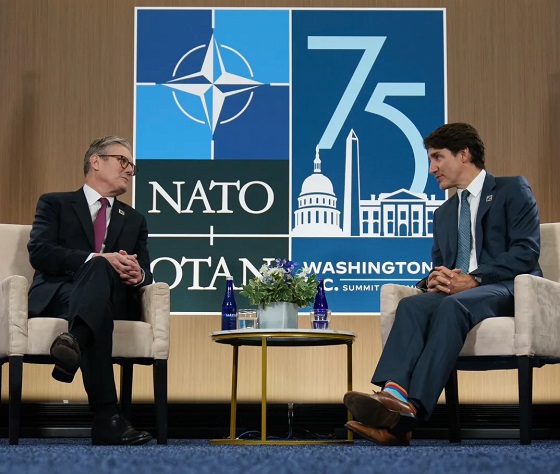
 espionage1 day ago
espionage1 day agoStarmer Faces Questions Over Suppressed China Spy Case, Echoing Trudeau’s Beijing Scandals
-

 Business1 day ago
Business1 day agoLabour disputes loom large over Canadian economy
-

 Alberta2 days ago
Alberta2 days agoJason Kenney’s Separatist Panic Misses the Point
-

 Energy17 hours ago
Energy17 hours agoBC NDP Premier Opposing a New Oil Pipeline to Tidewater
-
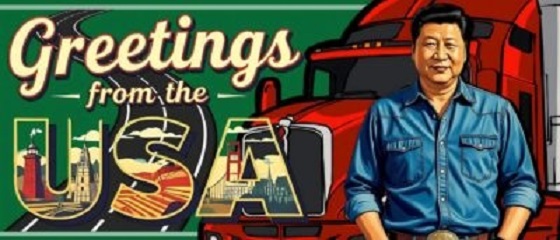
 Business1 day ago
Business1 day agoDaily Caller EXCLUSIVE: Chinese Gov’t-Tied Network Training Illegal Immigrants To Drive Big Rigs In US
-

 International17 hours ago
International17 hours agoNegotiations continue in Israel-Hamas peace deal
-

 Automotive2 days ago
Automotive2 days agoBig Auto Wants Your Data. Trump and Congress Aren’t Having It.


